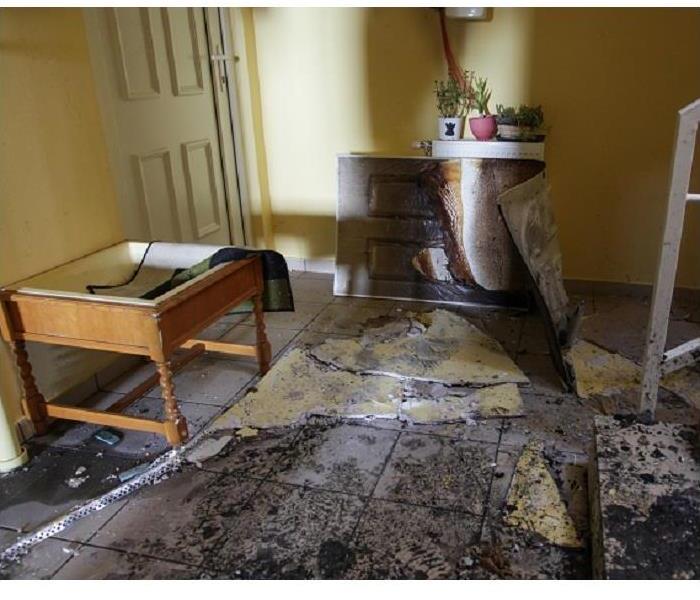Mary Esther Professionals Give Tips on Cleaning Fire Damaged Homes
9/18/2019 (Permalink)
 A small fire started in the kitchen, but smoke and soot spread throughout the home. SERVPRO has the tools to restore your home completely.
A small fire started in the kitchen, but smoke and soot spread throughout the home. SERVPRO has the tools to restore your home completely.
Cleaning That Takes Place After Fire Damage Affects A Mary Esther Property
After small fires such as a stove flaring in the kitchen or an appliance malfunctioning elsewhere, smoke deposits are likely to be the main problem that needs addressing. Depending on the materials affected, there might be clouds of smoke which spread to other parts of the house quickly, thus widening the scope of fire damage from the start point.
Apart from replacing the ruined appliance or other materials at the ignition point, restoring such fire damage in your Mary Esther property requires cleaning principally. It might sound simple, but on considering the variety of materials affected, from fabrics such as upholstery to building materials, you realize it is not an easy task. Also, apart from surface deposits, some might bond with materials creating stains. Our SERVPRO technicians can address the problem with ease because we first scope the property identifying the type of residues and their spread patterns. Scoping helps establish different categories of soils, including:
- Hydrophilic – they dissolve in water
- Hydrophobic – do not dissolve in water
- Lipophilic – they dissolve in oil-based cleaning agents
- Lipophobic - do not dissolve in oil-based cleaning agents
The wide variety of soils means that one approach only cannot clean your fire damaged property thoroughly. Some cleaning processes might also cause problems if used indiscriminately. For example, power washing is very useful in removing soils from surfaces. However, if used to clean materials such as drywall, excessive pressure and wetness can ruin the material. Our SERVPRO technicians use methods such as vacuuming to lift loose soils from surfaces. Agitation and use of cleaning agents also help break the bond soils have with materials.
In some cases, using conventional cleaning methods might not work on the soils, especially when involving wet smoke or protein residues. Advanced methods to breakdown such soils might be necessary. Our SERVPRO technicians can use enzymes or bleaching agents depending on the type of soiling. Enzymes work through changing the soil from insoluble to soluble state. Bleaches, on the other hand, work by adding or reducing oxygen molecules.
If you want a team that has what it takes to clean your home to its preloss state, call SERVPRO of Fort Walton Beach. You can reach us any time at (850) 863-2552.
More about Mary Esther.






 24/7 Emergency Service
24/7 Emergency Service